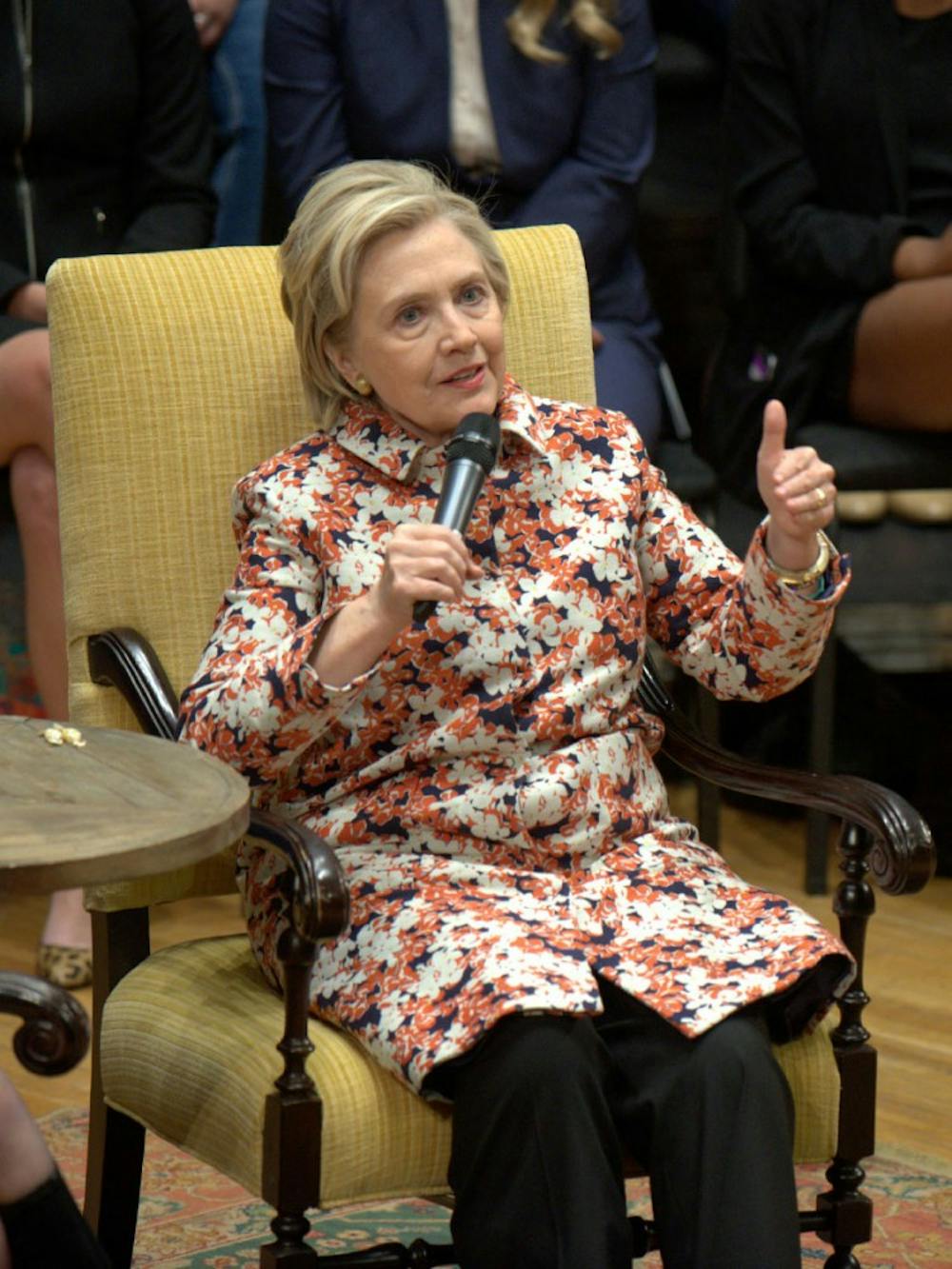On Nov. 13 and 14, the University held the Women’s Global Leadership Forum, or WGLF, as a part of its Bicentennial. The forum brought together women from the University and around the world to discuss “the role of women in 21st century democracy” through multiple lenses, including health, economic mobility and women and political power. The event closed with an address titled “Women and 21st Century Democracy: The Path Forward,” by Hillary Clinton, former U.S. Secretary of State and the Democratic 2016 presidential candidate. In response to the high demand for the address, the University held an online lottery through which students could request tickets to the event, which was held in the auditorium of Old Cabell Hall. The WGLF Steering Committee claimed that the decision to hold the address in Old Cabell as opposed to a larger venue such as John Paul Jones Arena was based on their desire to have “a more intimate conversation,” but their use of a lottery system actually detracted from the event’s intimacy. The limited availability of seating in the auditorium resulted in few successful lottery requests, so Clinton’s address did not reach its potential for benefit to the University community.
The structure of the WGLF events prior to the closing address contributed to the University’s goal of effectively discussing the role of women in many different areas. Attendance offered viewers the opportunity to watch and listen to distinguished guests speak on a number of issues and women’s roles within them. The events were held in Newcomb Hall, the Rotunda and Old Cabell Hall, where panelists discussed their views and interacted with each other on stage, as well as with the audience in question and answer sessions. For events prior to the closing address, the smaller size of the venues contributed to the goal of effectively discussing women’s roles in society by engendering a sense of community — audience members contributed to the conversation by offering their own analysis and input of the topics at hand. As the goal of the initial WGLF events was to foster discussion between diverse parties, smaller venues were the right choice.
The message of Clinton’s address differed from those of the previous events of the WGLF. First, as the closing address, Clinton brought in elements from each part of the two-day conference. She addressed the role of women in business and political scenarios, as well as the struggles faced by women in daily 21st century life. She also discussed her personal experiences, demonstrating that even women in powerful roles must overcome gender-based discrimination. Although the previous events of the WGLF acknowledged these concerns, they did so within the scope of their individual discussions. On the other hand, the content of Clinton’s speech and discussion with Virginia First Lady Dorothy McAuliffe were broader and less-tailored to any individual subject or concern. While the auditorium of Old Cabell furthered the goals of the events that addressed an individual concern, Clinton’s discussion needed a venue that could accommodate a larger audience — one that reflected the broad nature of her address. A larger audience would have benefitted Clinton’s address because of the widely applicable nature of her content. That is, her message of the importance of overcoming adversity can be applied to many scenarios, and could have been utilized by members of the community who hold distinct values. Specifically, her discussion of the path forward from the current state of affairs holds value for many different communities within the University. If more students, faculty and community members had been able to attend the address, Clinton’s message would have been better received because it would have been spread more widely, and the WGLF would have accomplished its goal of exploring the challenges women face and the contributions they have made to society.
Organizers of the forum justified their decision to hold Clinton’s address in a smaller venue by stating that “they didn’t want a campaign style arena.” They were concerned that the large crowd would detract from the intimate nature of the forum that played such a vital role in the initial sessions. That intimacy, however, was not an important component of Clinton’s message. Her message centered around how women can best accomplish their goals in the decades to come, which has wide applicability within the University community. Unfortunately, those most interested in the message had a low chance of participating because of the size of the venue. The University offered alternative viewing locations where the address was live streamed, but projector screens in Newcomb Theater and the Jefferson School African-American Heritage Center could not capture the excitement and interest of the audience present in the auditorium itself. By limiting the size of the event, the University hindered many community members’ ability to benefit from Clinton’s address. As the closing address, Clinton’s speech contained broad and widely-applicable messages, for which a large contingent of the University would have benefitted. For those who were able to attend the address, Clinton’s message provided valuable insights. Much more of the University community would have benefitted, though, if the University had held the event in a larger venue.
Jake Lichtenstein is an Opinion columnist for the Cavalier Daily. He can be reached at j.lichtenstein@cavalierdaily.com.







